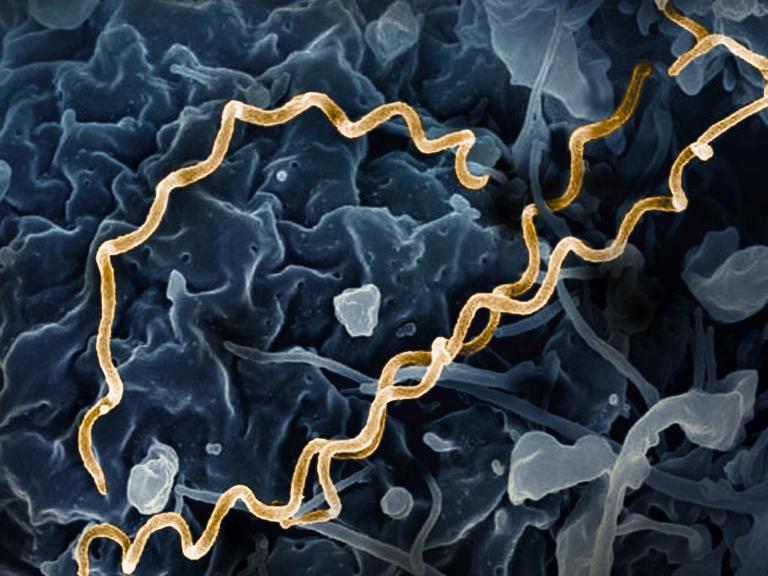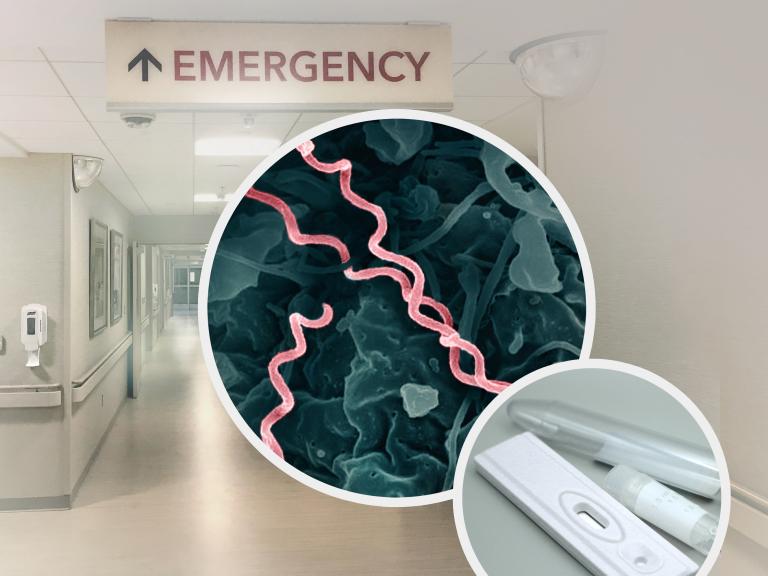Syphilis is a common sexually transmitted infection (STI) caused by Treponema pallidum bacteria. If untreated, syphilis can result in adult neurological and organ damage as well as congenital abnormalities, stillbirth, and neonatal death. After decades of relatively low prevalence, syphilis cases have risen sharply since 2000. NIAID participates in the National Syphilis and Congenital Syphilis Syndemic Federal Task Force and supports a broad syphilis research portfolio with a goal of advancing syphilis diagnosis, prevention and treatment.
Highlights

NIAID-Supported Research is Advancing the Response to Surging Syphilis Rates
Syphilis can result in adult neurological and organ damage, as well as congenital abnormalities, stillbirths, and neonatal deaths. NIAID supports research to address these areas including studies featured at the STI & HIV World Congress in Chicago.

Emergency Department Screening More Than Doubles Detection of Syphilis Cases
Providing optional syphilis tests to most people seeking care at a large emergency department led to a dramatic increase in syphilis screening and diagnosis, according to a National Institutes of Health (NIH)-supported study of nearly 300,000 emergency department encounters in Chicago. Most people diagnosed had no symptoms, which suggests that symptom-based testing strategies alone could miss opportunities to diagnose and treat people with syphilis. The results were published today in the journal Open Forum Infectious Diseases.
News Releases
- Emergency Department Screening More Than Doubles Detection of Syphilis Cases
September 10, 2024 - NIH Awards Will Support Innovation in Syphilis Diagnostics
September 3, 2024
Funded Research News
- NIH Funds Three Syphilis Diagnostics Projects
September 19, 2024
Related Public Health and Government Information
Read the Syphilis Fact Sheet the Center for Disease Control and Prevention (CDC).

